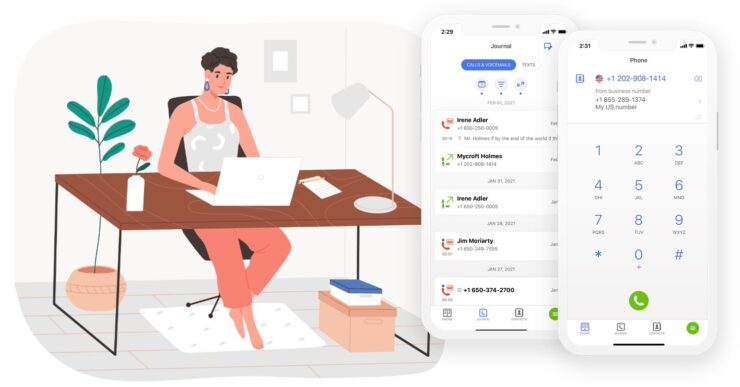When choosing a phone system for a business, VoIP’s reliability is a very recurring topic of conversation. Here are some aspects to consider when selecting a VoIP provider.
Very few businesses can function without the presence of a telephone. Whether for sales operations or customer service, companies need a way to communicate with their current and future customers. Voice over internet protocol (VoIP) providers provide businesses with an affordable, modern, and more versatile alternative to traditional landlines, but the issue of reliability still raises questions.
The truth is that IP telephone systems offer reliable and good-quality professional calls. The idea that internet calls are unreliable came from web tools’ origins when the infrastructure that housed technological innovation was too small.
These doubts about reliability are dispelled when users understand the factors involved in making calls with IP phones. In fact, there are some steps that customers (and their phone providers) can take to make sure everything runs as smoothly as possible.
When they do occur, the benefits of VoIP telephone outweigh those of landline services.
The relocation of services is a phenomenon that has begun. Today a laptop and connection are enough to work from anywhere in the world, and that means that a company can serve clients from another continent or that it can serve them 24/7 with employees from all over the globe.
By combining CRM (Customer Relationship Management) platforms and connection with virtualization of calls via Virtual Phone number, it is possible to stay in contact with customers wherever they are. Some IP telephone operators even offer free CRM connected to its virtual switchboard, also free.
VoIP calls to reduce costs
Spending is a growing concern in entrepreneurs and companies, who do not want possible cuts or cost reduction measures to affect their relationship with their customers. How do I have daily conversations with my clients if the call setup is still this high?
The answer is in voice-over IP or VoIP, a way of calling using data instead of traditional operators’ classic minutes. This form enables clear, high-quality calls to ordinary phone numbers without customers noticing that a digital call redirects them.
That is, the customer will see a regular phone number on their smartphone screen. If it is worth switching to VoIP, it is because switching from traditional calls can mean significant savings for companies, especially for those who call abroad or who need an essential infrastructure to, for example, record conversations or create leads.
Also, as these numbers are multichannel, several customers can call at the same time and receive telephone attention. The PBX in the cloud will simply redirect the call to the company’s phone that is free or put a predefined message if everyone is busy. That is, we will not miss any incoming calls.
If you have a device, you have a switchboard.
Years ago, a telephone switchboard required a push-button telephone and a fixed location to operate. It did not offer too many functions beyond putting the call on hold or forwarding it to another terminal (also fixed). Today, thanks to advances in IP telephone, a smartphone or computer connected to the Internet is enough.
If you are planning to take the business phone system service, then go through the reviews of some business system service providers like Linkedphone Reviews to find more about these service providers beforehand.




























